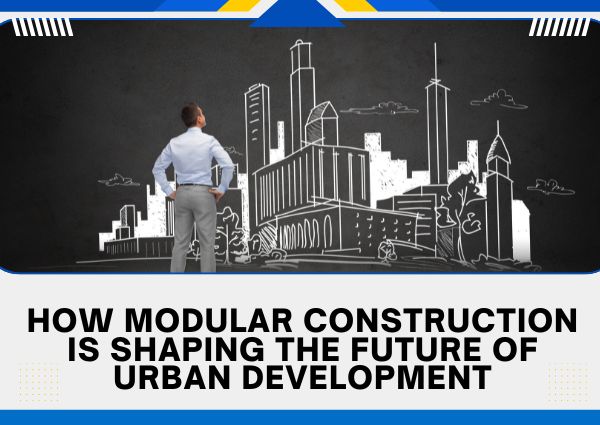The landscape of urban development is transforming rapidly, and modular construction is at the forefront of this change. As cities continue to expand, there is an increasing need for efficient, sustainable, and cost-effective building solutions. At 3S Buildcon, we recognize the immense potential of modular construction in redefining urban environments. This article explores how modular construction is shaping the future of urban development.
Understanding Modular Construction
Modular construction involves the prefabrication of building components in a controlled factory environment before transporting and assembling them on-site. Unlike traditional construction methods, which rely on sequential site-based processes, modular construction accelerates timelines, reduces waste, and enhances quality control.
- Faster Project Timelines
The rapidity of delivery is one of the biggest benefits of modular construction. Since building components are manufactured off-site simultaneously with site preparation, construction projects can be completed in almost half the time compared to conventional methods. This is especially crucial in urban settings, where rapid population growth necessitates quick housing and infrastructure development.
Key Benefits:
- Concurrent work processes reduce construction time.
- Weather-independent construction ensures fewer delays.
- Reduced labor-intensive site work leads to more efficient project execution.
- Sustainability and Waste Reduction
Environmental concerns are at the heart of modern urban development. Modular construction significantly minimizes material waste by using precise measurements and recyclable materials. Additionally, controlled factory environments allow for better resource management, resulting in lower carbon footprints.
Sustainable Features of Modular Construction:
- Energy-efficient materials reduce overall consumption.
- Reusable modules decrease demolition waste.
- Reduced site disruption preserves surrounding environments.
- Cost-Effective Solutions
Urban projects often struggle with budget overruns due to unexpected delays, material wastage, and labor shortages. Modular construction helps mitigate these challenges by offering a predictable cost structure. Since most work is completed off-site, expenses related to site management, logistics, and labor are significantly reduced.
Financial Advantages:
- Lower labor costs due to factory-based production.
- Fewer material overruns from precise prefabrication.
- Shorter construction timelines minimize financial risks.
- Improved Quality Control
A major drawback of traditional construction is the variability in craftsmanship due to on-site challenges. Modular construction ensures higher quality and consistency, as components are manufactured under strict quality control measures in a factory setting. Advanced technologies, such as automated machinery and AI-driven inspections, further enhance the precision and durability of modular structures.
Why Quality Matters:
- Standardized production leads to uniform building components.
- Advanced testing ensures structural integrity before deployment.
- Reduced defects and rework minimize long-term maintenance costs.
- Adaptability and Customization
Contrary to the misconception that modular buildings lack uniqueness, modern modular designs offer unparalleled flexibility and customization. Modular structures can be tailored to meet various urban needs, including residential, commercial, and mixed-use developments.
Customization Features:
- Scalable designs accommodate future urban growth.
- Diverse aesthetic choices blend seamlessly with city architecture.
- Adaptable structures enable easy modifications and expansions.
- The Role of Modular Construction in Smart Cities
With the rise of smart cities, modular construction is expected to play a crucial role in integrating technology-driven solutions. Prefabricated modules can incorporate smart infrastructure, including IoT-enabled energy systems, automated security features, and green technology, ensuring cities are more efficient, sustainable, and livable.
As urban areas continue to expand, modular construction is proving to be a game-changer in efficiency, sustainability, and cost-effectiveness. At 3S Buildcon, we are committed to leveraging cutting-edge modular construction techniques to deliver future-ready projects that meet the evolving demands of urban development.

